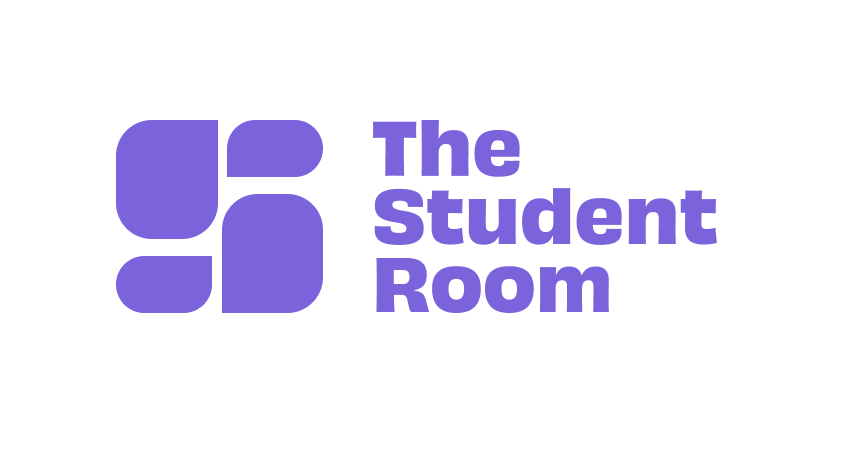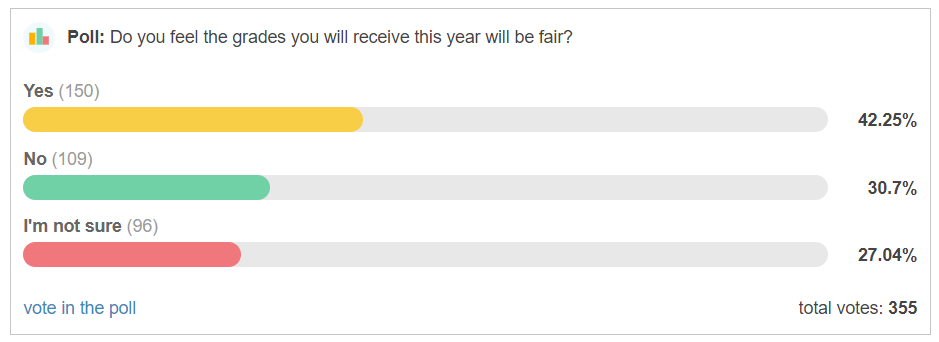Clearing 2022 doesn’t feel like the pandemic cycles of 2020 and 2021, but it’s not like the pre-covid years either. So what should you expect? We are here to help you navigate the new, new normal. (Another one, we know…but stick with us).
In this blog, we’ll look at trends from Results Week 2021, what student activity and polls are telling us about the 2022 applicant cohort, and what you can do to not only survive, but thrive in Clearing 2022:
Let’s remind ourselves what happened last Clearing cycle
Student numbers
On The Student Room, our general sense was that Clearing 2021 was calmer than Clearing 2020. That said, we did see some confusion in our forums about the appeals process (so this is also one to keep an eye on in 2022).
507,610 students were placed, of which 47,010 (9%) came through Clearing and 10,590 of these went direct to Clearing. (UCAS)¹
A media rumour circulated that 20% more students were unplaced on Results Day compared to 2020, but UCAS clarified that less than two-thirds of the reported unplaced students were UK-domiciled.
There were also concerns that universities might over-recruit students (BBC). The number of students enrolled on first degree courses did increase 8% year on year in 2021 (around 50,000 additional students), but HESA noted: “Data in this release does not reflect any notable impact on student enrolment numbers due to the COVID-19 pandemic.” (HESA)²
Demographic factors may also be playing a role in this growth. According to (ONS)³ population projections, the number of 18-year-olds in the UK has risen 5% since 2019, and will continue to rise:
Exams and results
Exams were cancelled for the second year in a row, and students were given Teacher Assessed Grades (TAGs). Despite concerns in the media that teachers would be too generous, only 15% of schools were asked to moderate the grades they awarded.
We asked students in our community how they felt about their exam results, and there was a very even split between those who exceeded, met and performed worse than their expectations:
With a shortage of Clearing places for Medicine, a surge in demand for this subject since the start of the pandemic, and more students achieving top grades, it was not all that surprising to us that Medicine was oversubscribed with the highest number of unplaced students in Clearing. Some universities responded by giving offer holders the chance to defer or transfer to another university.
How will this cycle be different?
Exams are back, and Ofqual4 has confirmed that grades “will reflect a mid-way point between 2021 and 2019” with the aim of returning to pre-pandemic standards in 2023. Once again, this is a year marked by grade uncertainty for students, which is why contingency planning for Clearing will be vital.
At the time of writing, there are some concerns in the media that strike action by AQA may cause delays (Guardian, Metro, BBC), but AQA’s spokesperson has gone on record to say that they have plans in place to ensure results are delivered on time (Thursday 18th August).
With the return of exams, our study help forums have been buzzing with activity all summer – these are the first exams the current Year 13s have taken since their SATs, so they have been reaching out to peers for revision tips, to discuss exam papers, and to seek reassurance for their nerves.
We polled students at the end of February and found that 42% felt their grades would be fair (compared with only 23% when we asked in October 2021):
Students might feel more confident about fairness, but this has not translated into confidence about exam performance. Throughout the pandemic, students have been reporting struggles with mental health and low motivation.
A poll in late June revealed that nearly half of Year 13s think they have missed the grades they need for their firm university offer and another showed that nearly 40% of Year 13 found the exams harder than they expected.
Grade pessimism and uncertainty, coupled with low motivation and inexperience in sitting exams, could signal a bumper year for Clearing.
This academic year, students also had access to Advance Information for exams, and while 67% of students we polled said this helped them, some were sceptical:
advanced information was given a bit too late. without considering kids started their revision early. so I found obviously people started on the first topics taught at the beginning of their courses which ended up not being on the exam and this wasted time for them.
I prefer they never gave it because that gave them the excuse to give us harder exams.
for subjects where everything is interelated it’s been useless like sciences, otherwise topics like psychology, maths and english , they’ve helped alot
When we asked Year 10 and Year 12 if they want Advance Information for their 2023 exams there was a 50/50 split between students who said yes and those who felt it was not needed:
Different exams boards are giving different amounts of useful information which only makes things unfair.
How can you support Clearing applicants?
We asked 2021 Clearing applicants to share their thoughts on how universities could improve their Clearing communications. Some of the common requests included:
- social proofing – respondents said it would be helpful and reassuring to know that others had been through the same process (and to get a glimpse of what their experiences were like)
- a “survival guide” with information about preparing for university
- more help with student accommodation (especially short notice)
- better guidance about student finance (this poll revealed many 2022 applicants were unclear about how student finance works)
- mental health support (since Clearing is a stressful time)
Remember that 2022 Clearing applicants have faced a huge range of challenges. To name just a few: GCSE cancellations, new revision approaches and confusion around advance information, long-term learning disruption, staff shortages, low motivation, and a cost of living crisis.
Mental health is an area which applicants increasingly expect universities to offer support with, so it’s important that all Clearing communications are empathic (whether that’s campaigns or admission teams receiving Clearing calls). Our student sentiment decks are a great way to stay up-to-date with the issues that matter most to students.
Our top tips for Clearing
- Plan a contingency budget – this is another uncertain Clearing cycle and the most agile universities will come out on top. Think about what you can do to boost numbers quickly if needed – lean on your TSR account manager for support here – we have media options which are quick to activate and will help you to reach the students you need the most
- Provide clear information for students and be accessible for enquiries – we recommend FAQ pages, sticky threads on your university forum (for Official Reps), step-by-step guides to the Clearing process, guidance about accommodation and student finance, and (if possible) making student ambassadors available to offer peer-to-peer support. In our recent student panel, SMS was also suggested as a great way to cut through the noise and get your message out
- Catch up on our Clearing webinars and insight content to set yourself up for success – check out communication tips for Official Reps and student recruiters with no Rep, Clearing campaigns and creatives, Clearing and Results Week analysis 2021
- Show compassion for the pressures students are under – empathise with students’ concerns – it’s not just exams and university applications they have to worry about. That said, if they’re in Clearing they may be feeling panicked or disappointed about not getting into their firm choice, so help them form a backup plan which feels right for them. (get our regular student sentiment updates or sign up to our mailing list for more information)
- Ask questions – we are here to help if you want to know more about how students are thinking and feeling in Clearing, and what you can do to connect with them
The Student Room can provide the insights and campaigns to supercharge your Clearing cycle.
Get in touch:
0800 999 3222
hello@thestudentroom.com
Sources
¹ UCAS statistical-releases-daily-clearing-analysis-2021 (data: day 28 after Results Day, 7 Sept 2021), 28 days [Accessed 25 July 2022]
² Higher Education Student Statistics: UK, 2020/21 [Accesssed 25 July 2022]
³ National Population Projections 2018-based: Principal Population Projection by Single Year of Age 0 to 125 [Accessed 25 July 2022]
4 Ofqual’s approach to grading exams and assessments in summer 2022 and autumn 2021 [Accessed 25 July 2022]




